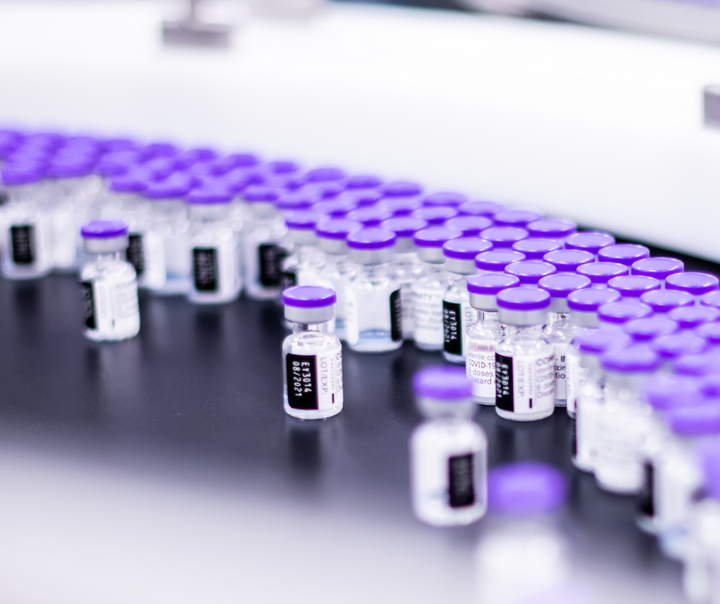KUALA LUMPUR, Nov 25 — Malaysia’s recommendation of homologous boosters for adults initially inoculated with AstraZeneca-Oxford’s Covid-19 vaccine differs from countries that mix AstraZeneca with mRNA boosters, like the United Kingdom.
Yesterday, the Covid-19 Immunisation Task Force Booster (CITF-B) recommended Pfizer-BioNTech as the main booster to primary vaccination across all vaccine types except AstraZeneca, listing the mRNA vaccine as a secondary booster option instead for adults fully vaccinated with AstraZeneca, a viral vector vaccine produced by the UK’s Oxford University.
It is unclear why the government isn’t recommending Pfizer as a default booster for people fully vaccinated with AstraZeneca, as studies published as recent as last week in the UK pointed to “increased protection” from Pfizer boosters given to AstraZeneca recipients.
A study by the UK Health Security Agency (UKHSA), which considered the impact of the booster programme in those aged 50 and older, suggests that a Pfizer booster dose could, two weeks after receiving the third dose, boost protection against symptomatic infection in that age group to 93.1 per cent for those who had AstraZeneca as their primary vaccination series.
Those who initially had two doses of Pfizer had marginally higher vaccine efficacy against symptomatic Covid-19 infection with a third Pfizer shot at 94 per cent, the study found. Both rates are higher than the protection against infection found after completing the initial two-dose vaccination.
University of East Anglia professor of medicine Paul Hunter said the findings, described as the first real evidence of the effectiveness of the Pfizer booster in the UK setting, confirm what had been reported in Israel about the efficacy of the booster.
“This report also gives reassurance that whether someone had AstraZeneca or Pfizer as their first course, the booster provides similar excellent protection.
“It is too early to know how effective the booster will be in the UK at reducing the risk of hospital admissions. But from the Israeli experience we can expect the booster to be even more effective at preventing severe disease than at preventing symptomatic infection,” Hunter said.
In the UK where the AstraZeneca Covid-19 vaccine is widely used, people over 40 and those over 16 with a health condition are currently offered either a Pfizer or Moderna booster dose. An AstraZeneca booster will only be given if recipients cannot have Pfizer or Moderna.
In South Korea, where SK Bioscience produces Covid-19 vaccines for AstraZeneca, the Korea Disease Control and Prevention Agency (KDCA) also recommends booster vaccinations with an mRNA vaccine made by Pfizer or Moderna for AstraZeneca recipients.
The Korea Herald, however, noted that for people who received both AstraZeneca and Pfizer in a mix-and-match regimen for their primary series, the third dose should be from Pfizer, rather than Moderna, to “minimise the types of vaccines” a person takes. Most mix-and-match studies have so far focused on heterologous vaccinations that combine two vaccine types or brands.
South Korea, along with several other countries in Europe, had earlier this year approved dose mixing between AstraZeneca and Pfizer, due to a number of reasons including safety concerns and supply issues.
A KDCA study in South Korea reported by Reuters in July showed that mixing AstraZeneca and Pfizer vaccines boosted neutralising antibody levels against Covid-19.
The heterologous vaccination with AstraZeneca first and Pfizer for the second dose improved Covid-19 antibody levels six times more than receiving two doses of AstraZeneca. The mixed inoculation reportedly produced similar amounts of neutralising antibodies as receiving two Pfizer doses. A total of 499 health care personnel took part in the study.
Oxford University’s Com-Cov vaccine trial, which studied the use of different combinations of approved Covid-19 vaccines, also discovered that a mixed two-dose schedule of the Pfizer and AstraZeneca vaccine can boost concentrations of antibodies against Covid-19 spike proteins. The Com-Cov study involved 850 volunteers aged 50 and above.
A similar trial of more than 600 people conducted in Spain also showed benefits of combining the AstraZeneca and Pfizer vaccines. The study found that AstraZeneca-dosed participants began to produce much higher levels of antibodies after they were given a second Pfizer dose.
Spain and Germany began offering the Pfizer or Moderna mRNA vaccines as a second dose to people who received the AstraZeneca vaccine for their first dose — including German Chancellor Angela Merkel — as early as in June.
The German Standing Committee on Vaccination in July issued a “strong recommendation” that people who receive a first dose of the AstraZeneca vaccine “should get an mRNA vaccine as their second dose, regardless of their age.” The European Medicines Agency (EMA) currently recommends Pfizer and Moderna as booster Covid-19 shots for adults above 18.
Canada’s National Advisory Committee on Immunisation also made a recommendation, albeit weaker, on June 17 when it said that an mRNA vaccine is now “preferred” as the “second dose for individuals who have received a first dose of AstraZeneca/Covishield vaccine”.








